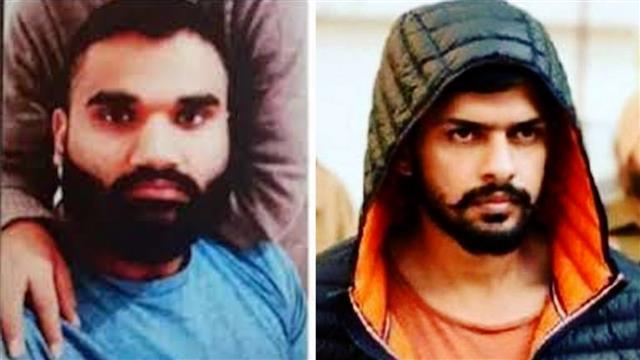On September 21, 2023, the dreaded gangsters Lawrence Bishnoi and Goldy Brar emerged as the orchestrators of Sukha Duneke’s killing in the Canadian city of Winnipeg. After the murder, Bishnoi shared a lengthy post on Facebook and claimed responsibility for the death of the Punjab Mobster.
Duneke shot dead in Winnipeg
In the post, he revealed that his group was the main driving force behind the attack and the death of Duneke, the leader of the Bambiha Gang. He claimed that Duneke uprooted several homes due to his heroin addictions and had allegedly plotted the killing of singer Gurlal Brar, Akali Dal leader Vicky Middukhera and Kabaddi leader Sandeep Singh Sandhu.
Bishnoi claimed that Duneke’s death was a result of his wrongdoings and warned rival gangs that feuding with him result in a similar fate and consequences. He added that while it may take longer, he would catch hold of his opponents and punish them for every single one of their acts.
The menacing post comes a day after Duneke succumbed to multiple shots in a shooting that is said to have spurred from an inter-gang rivalry in Canada. He was among the list of gangsters and terrorists that the Indian Government shared with Canada amid rising violence in the country.
Duneke arrived in the North American country in 2017 through forged documents. Since then, he has faced multiple criminal cases. His death comes at a time when the ties between India and Canada worsen over the allegations relating to the death of Khalistani leader Hardeep Singh Nijjar.
Diplomatic Friction between India and Canada
Earlier this week, Canadian Prime Minister Justin Trudeau blamed New Delhi for the killing. The baseless allegations were dismissed by the Indian Ministry of External Affairs which branded them absurd and motivated. The tensions have escalated and resulted in the dismissal of the top envoys from both nations, Meanwhile, the Indian visa services in Canada have been indefinitely suspended in the wake of the standoff.
Gang Wars in Canada
Since the 1980’s when a large number of Punjabis began to migrate to Canada, the ethnic Punjabi gangs have become a part of the Canadian landscape. This was in part responding to racial marginalisation in part because of cultural conflicts within the community and in part, masculinity signalling behaviour borrowing on the idioms of other ethnicities.
These groups were born and prospered as the local residents saw them as protectors. Now Canadian soil has become a fertile land for gangsters and in recent years, their activity has increased significantly paving the way for gang wars to break out.
Reasons for Emergence
The strong presence of Khalistani extremists, leaders and terrorists in Canada helps the gangsters through funding and also enables their movement from India to foreign land. It also benefits the Khalistani leaders to do so as the gangsters continue to perpetrate anti -India and terror activities on Indian soil.
It is reported that the Sikhs For Justice (SFJ) a pro-Khalistani group banned in India back these gangsters. Most of the gangsters after committing heinous crimes go to Canada as they are backed by the SFJ links. From there and support with the SFJ links support, they operate the entire nexus, including the drug trade, extortion and money laundering. The Justin Trudeau government has taken no action against them.
On Canada’s Pape Avenue, the Punjabi population used to have a shelter home. People reaching Canada used to first stay there before finding their own accommodation but local residents reportedly harassed them. When confronted by these Punjabis, it turned out to be a serious fight between the two. From there, some of these Punjabi youth saw the potential to benefit.




















Comments